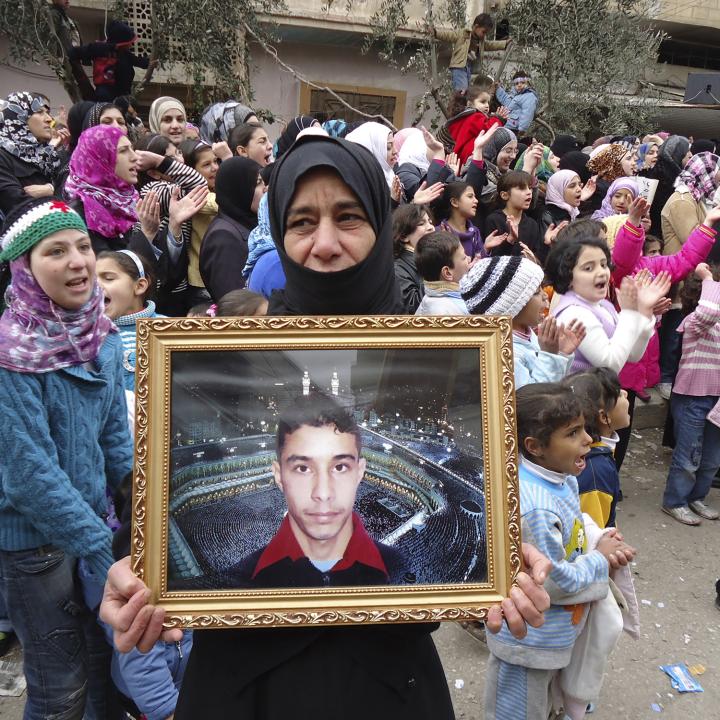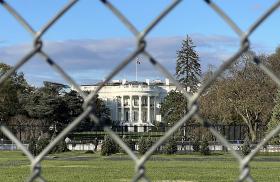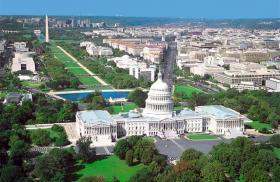
- Policy Analysis
- PolicyWatch 4051
Without Accountability, Syria’s Sectarian Violence Will Only Worsen

The government’s plans for (and capacity to carry out) amnesties and transitional justice remain uncertain, spurring some Sunnis and Alawites to take matters into their own hands and contribute to a rising wave of intercommunal violence.
On May 16, the Syrian government announced the creation of a new Transitional Justice Commission, the first serious step toward accountability for the Assad regime’s crimes. Yet critics have already pointed out that the commission lacks transparency and will focus solely on perpetrators from the former regime, excluding crimes committed since Bashar al-Assad was ousted. The lack of any accountability process for the past six months is already fueling further cycles of retribution across the country. To stem this growing social unrest and prevent escalating violence, Damascus must ensure that the new commission works quickly, transparently, and independently. At the same time, Washington and its partners must push for—and provide technical support to—a broader, more legitimized process of transitional justice.
Lack of Transparency
The absence of transitional justice and accountability for regime criminals is among the most pressing issues facing Syrian society today. Confusion over who is officially deemed guilty or forgiven, coupled with outrage over the continued freedom of many known perpetrators, has fueled popular anger against any Syrians seen as former loyalists. This anger is frequently expressed in sectarian dimensions due to the regime’s weaponization of the Alawite sect. In turn, the risk of communal punishment for regime crimes has left the Alawite community unsure of their role in Syria’s future, pushing some men to support ex-regime insurgents.
Meanwhile, the new government’s efforts to arrest regime criminals have been inconsistent, opaque, and poorly communicated. Two separate approaches seem to have emerged. For those who held high-ranking positions or were linked to prominent massacres, government outlets regularly publish announcements of their arrests, and they tend to remain in prison once detained (with important exceptions; see the discussion of Fadi Saqr below). Yet many former informants and lower-level personnel continue to walk the streets. Locals regularly report such criminals to the security forces, but oftentimes they are released after just a few days’ detention.
Further complicating matters is taswiya (settlement), a process that the new leadership began applying to ex-regime security forces in December to register them with temporary ID cards. Although authorities explicitly stated that taswiya was not a form of amnesty, many Alawites viewed it as a return to civilian status.
In explaining its delayed efforts to go after known regime criminals, the government has cited sparse resources, a lack of necessary evidence for case building, and lack of space in state prisons. Similarly, Justice Ministry officials have bemoaned the gutted justice system for months, noting the lack of functioning courts and judges.
Rising Violence
Many victims of regime crimes and their families are increasingly frustrated with the drawn-out accountability process. In April, for example, demonstrators gathered in the former opposition hub of al-Tall to demand justice following months of complaints about regime collaborators walking free. Although this protest was peaceful, other locals have taken matters into their own hands with violence.
Perhaps the most prominent example so far was the massacre of Alawites that began on March 6 in Tartus and Latakia provinces following a coordinated insurgent uprising by pro-Assad Alawites. Shortly after the regime fell, a list of individuals allegedly responsible for the state-sponsored 2013 massacre of Sunnis in the north Tartus village of al-Bayda was circulated on Facebook. In conversation with the authors, a survivor of the 2025 Alawite massacre in neighboring Baniyas referenced this list when tallying the number of non-regime-affiliated Alawites killed in her neighborhood. “If those responsible for al-Bayda were known,” she asked, “why were ten of my family members killed in their stead?”
While government-affiliated armed groups played a large role in the March massacre, civilians were also responsible for many of the crimes. In Baniyas, some survivors claimed that Sunnis from the countryside committed up to half the murders, using the chaos to seek indiscriminate revenge for regime massacres inflicted on their villages a decade earlier. In the coastal village of al-Qadmus, a local confronted a member of a government-affiliated faction who was vandalizing an Alawite-owned business. In response, the man said that his entire family had been killed during a regime massacre he had barely survived. “I’m not here to follow orders,” he added, “I’m here to take my rights.” Reflecting on this encounter, another local conceded, “If I found the person who detained me, I would kill him myself.”
Although most Syrians have not acted on their desire for revenge, vigilante attacks have been rising in recent weeks. On April 21, a viral video spread on social media featuring three masked men who identified themselves as the “Special Accountability Force” in Azaz and threatened to kill regime collaborators who were known to have returned to their city. In the weeks since, vigilante-style executions have occurred steadily in Hama and Aleppo, primarily targeting Sunni collaborators. Meanwhile, armed men have continued attacking Alawite civilians in Homs City, western Hama, and Latakia since the March massacre.
Amid such incidents, the pressure for accountability is mounting. Some Sunni elites appear sympathetic to the government’s position, but many others are losing patience for the justice they have sought for decades. For their part, some Alawites see the slow accountability process for regime war criminals as a threat to innocent people in their own community. As an Alawite from the coast told the authors in April, “We believe most people would support trials because it would encourage an official process and prevent what happened on March 6.”
These two pressure points—accountability for perpetrators of the March massacre and for Assad regime criminals—are exacerbating sectarian tensions nationwide. Many Alawites view the new government as complicit in sectarian murders, while many Sunnis suspect that Alawites will never accept a real accountability process.
Underlying this tension is ongoing confusion over the amnesty process. The unresolved taswiya issue is particularly troublesome—Alawites who still hold the temporary IDs granted under that process now worry that they are a “mark of death” at any government checkpoint. As a priest in al-Suqaylabiyah explained, Alawites regularly come to him asking, “What makes a war criminal?” The priest admitted he was not sure how the government will make this determination.
The February release of notorious regime militia commander Fadi Saqr only inflamed this issue, with Alawite activists demanding to know how such a high-profile criminal could be released while low-level regime members were killed and arrested. Saqr has since been integrated into the post-March 6 “Civil Peace Committee” alongside the ex-regime insider Khaled al-Ahmed and revolutionary ideologues Hassan Soufan and Anas Ayrut. Saqr’s elevation provides some clarity on the government’s approach—namely, pursuing a “diplomatic” strategy to disarm and dissuade Alawite insurgents. Indeed, mass amnesties for all but the most serious war criminals are widely rumored to be in the works. It remains to be seen how this approach will be received by victims of the regime, and how such an amnesty might impact the future of Alawite-Sunni relations.
Regardless of what the government chooses, the fact is that no one can be held accountable until a functioning justice system is established. The longer this urgent task is delayed, the more violence will spread.
Policy Recommendations
The most important steps for Damascus are to quickly begin trials for Assad regime criminals, establish a clear amnesty policy, and act on the findings of the March 6 investigative committee. For its part, Washington should:
- Maintain funding for the international NGOs that have the technical expertise and connections to support capacity-building within the new Transitional Justice Commission. Using the massive trove of regime documents recovered from military and security centers is critical, but this process requires extensive technical and manpower support.
- Strengthen U.S. partnerships with Damascus more broadly. This will build political capital with the new government so that Washington can more effectively pressure authorities to hold their own supporters accountable for the March 6 massacre and other crimes. Indeed, economic deals that contribute to general stabilization can be an integral part of broader transitional justice efforts.
- Continue urging Damascus to carry out necessary judicial and security sector reforms. Subject-matter experts in the State Department could provide technical advice and training on judicial issues, while a working group with regional allies could be created to help address security reform.
Kayla Koontz is a PhD candidate at the Carter School for Peace and Conflict Resolution and a researcher at the Syrian Archive. Gregory Waters is a researcher at the Syrian Archive and a former consultant with the International Crisis Group. Both authors were recently in Damascus and the coastal region to conduct fieldwork on justice, accountability, and local governance issues.



